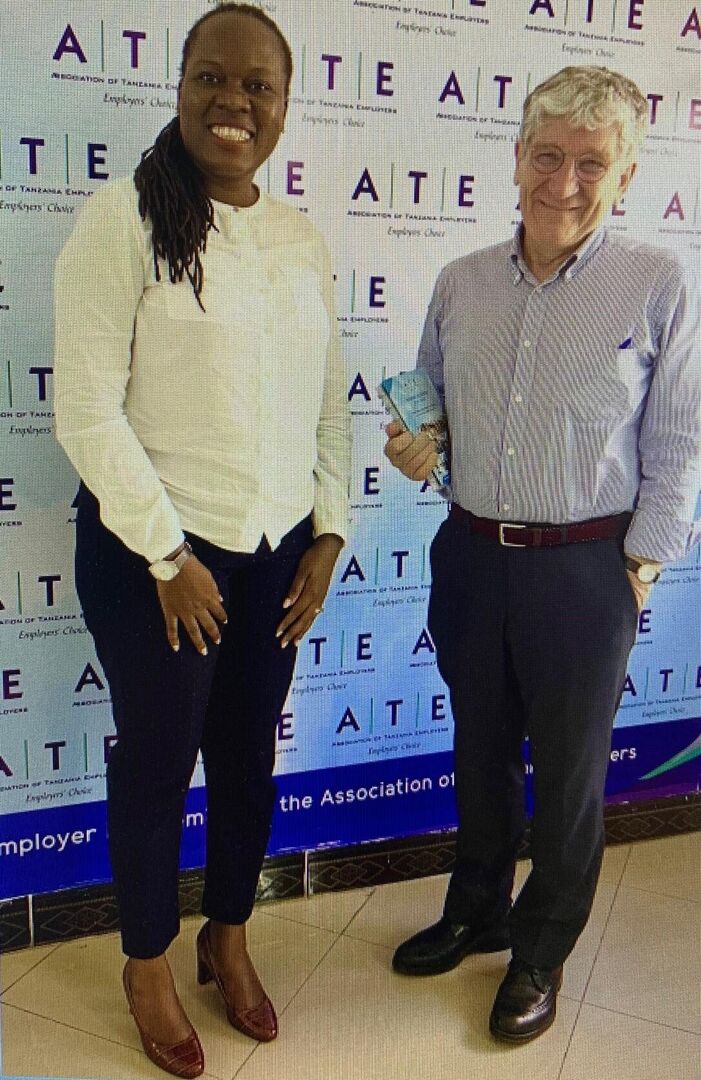

FKE (KENYA) AND ATE (TANZANIA) REDISCOVERED in full renewed development after COVID
The two years’ suspension of direct physical contact between DECP and the partners in East Africa, caused by Covid, has obviously many disadvantages. But, apart from the discovery of alternative methods of support such as Zoom- and Teams meetings, and more frequent use of WhatsApp, it has one big advantage: a pleasant relief when meeting again and especially a feeling of positive surprise, energy and re-discovery, when seeing new recent achievements and developments. Indeed, there may have been preparatory discussions on Zoom, and paper reporting on these developments, but actually seeing them and being able to sense and to discuss them is different : the dynamism, the enthusiasm and the renewed force behind changes is invigorating and only real contact can capture this. And also reveal the new orientations for the workplans 2022 and beyond.

Ms Suzanne Ndombe (ATE) and Dr. Arnout de Koster (DECP)
These were the common threads in the short missions which the country manager Arnout De Koster undertook in one go to Kenya and Tanzania from 4 to 8 April.
The biggest changes occurred without any doubt in Tanzania, where Ms Suzanne Ndombe took the lead of the Association of Tanzania Employers (ATE) as new Executive Director-CEO. Ms Ndombe led the ATE legal department for a number of years and is hence well acquainted with the organisation. But obviously her dynamism brings new accents which will partially change the image, the branding and the orientation of the organisation, whilst building on the acquired strengths of the past.
In that context, the plans and ideas to broaden the mandate of ATE to business issues which go beyond labour issues, to develop new services for membership and to invest in digitization, to reach out to more sector associations in the framework of membership policies, to actively continue to pursue social dialogue at different levels and to increase the visibility of ATE all reflect this policy whereby innovation and new accents will be combined with continuity.
In Kenya we met the Federation of Kenya Employers (FKE) and saw an organisation in good health. It had clearly – as the country as a whole- received a serious blow from Covid and this has affected the membership- and income levels. These levels clearly diminished, in spite of the excellent and remarkable work done by FKE to preserve the business climate for companies, via the conclusion of an MOU with the trade unions to stabilise industrial relations, and via the successful lobby interventions for large government support for companies and workers during the Covid crisis.
The Covid crisis now seems largely over or at least under control, and FKE is planning its renewed growth.
The first immediate challenge for the country will of course be the upcoming presidential elections in August. FKE, as in the past, has used all its authority to call for peaceful elections, when presenting its business agenda, in the pre-election process. FKE has not endorsed any specific candidate, but it advanced the thematic priorities on behalf of the business community.
Other challenges for FKE are to increase membership via more intense member communication and excellent services (where digitization will support its accessibility and quality). And of course membership also expects a strong representing voice of the business community. FKE has hence the challenge to ensure that its messages and proposals for policy, be it via its advocacy and lobbying efforts or via direct agreement in the framework of social dialogue, remain relevant, well heard, and followed by the decisionmakers. The business environment the new government will create is indeed a very important factor in creating more sustainable wealth and employment in Kenya.